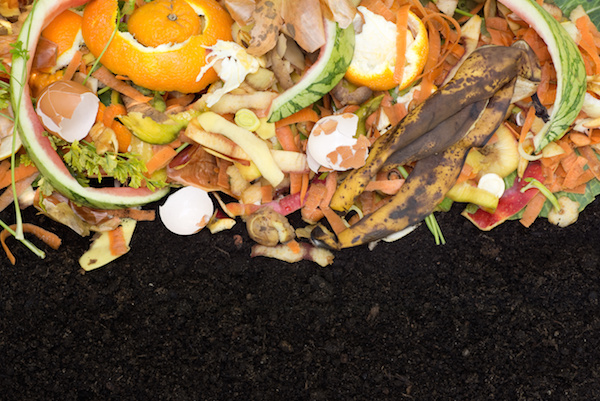East Coast business uses clean technology to take food waste out of landfills and put it into your garden.
Imagine a big composting machine that processes food waste by the ton. It’s not only bigger than the compost heap you have stirring in your backyard; it’s faster, too.
That’s the idea behind Converted Organics’ high-temperature liquid composting technology. The Boston-based company takes food waste from grocery stores, restaurants, and processing facilities around Boston, New York and New Jersey and turns it into an eco-friendly fertilizer that gardeners can use in their backyards.
Unlike your backyard compost pile, where dairy and meat products are a big no-no, Converted Organics accepts all types of food waste, including fruits, vegetables, and meats.
“Meats have high nitrogen compounds from additional protein,” says Rob Bayless, the company’s vice president of manufacturing, explaining why taboo compost additives are a key ingredient to the Converted Organics mix.
Contrary to backyard composting methods, they then liquefy the food waste. This not only breaks down the material to keep it from producing that nasty odor associated with decomposing garbage, it allows oxygen to more easily enter the mix, explains Bayless.
Air is inserted into the liquefied food waste, making way for the tiny microbes that will digest the waste into fertilizer. During this process, the liquid compost is heated to temperatures above 130 degrees Fahrenheit, sterilizing it from dangerous pathogens, such as E. coli and salmonella.
As of early 2010, Converted Organics could process 110 tons of food waste per week at its facility, which is a big step in keeping greenhouse-gas-making waste out of city landfills. But with its permit to dispose of 500 tons of food waste per day, the company has the ability to do much more.
“We’re bringing in some additional contamination removal equipment — in other words, a fancy way to remove plastic bags, tin cans and other trash,” Bayless says. Contaminants such as glass, metal, plastic and wood pose the biggest threats to the liquid compost. The contamination-removal technology will up their weekly food-waste capacity to 175 tons.
According to Converted Organics, co-founder Bill Gildea, its been interesting to see how the business has grown since 2000, when he first started investigating alternative ways to dispose of food waste at the South Bronx’s Hunts Point Cooperative Market.
“I think there’s a lot of enthusiasm and support for the business because it involves clean technology,” Gildea says. “Intuitively, people understand that there are (positives) in this kind of business, in getting waste out of landfills.”
In March 2010, Converted Organics took steps in expanding the breadth of their waste disposal when it partnered with New Jersey school systems to process food waste coming out of school cafeterias and dining halls.
“Educational institutions — from elementary schools through colleges — have become extremely environmentally conscious,” says Jack Walsdorf, vice president of waste management. “They recognize that sending their food waste to Converted Organics not only makes good environmental sense because it reduces greenhouse-gas emissions associated with landfill deposits, but it also makes good financial sense.”
Walsdorf says it costs school systems less to have their food waste hauled to the Converted Organics facility than to the local landfill. Could this also be true for residential communities?
“We’d love to get into residential waste,” says Walsdorf, though it was not possible for the company at the time this article was written. “Residential waste is just not clean enough for us to handle. If there are a lot of contaminants in the waste stream, it doesn’t work well with our processes.”
Source: UrbanFarmOnline.com


This is Dr Richard Salunoka, International Corporate Affairs Manager for Lukoria General Dealers and Construction Company Here in Zambia. Our company would love to co-operate with your company and promote your business in the area of mining and drilling. I have attached our profile for your further consideration.
Please advise and looking forward to hear from you.